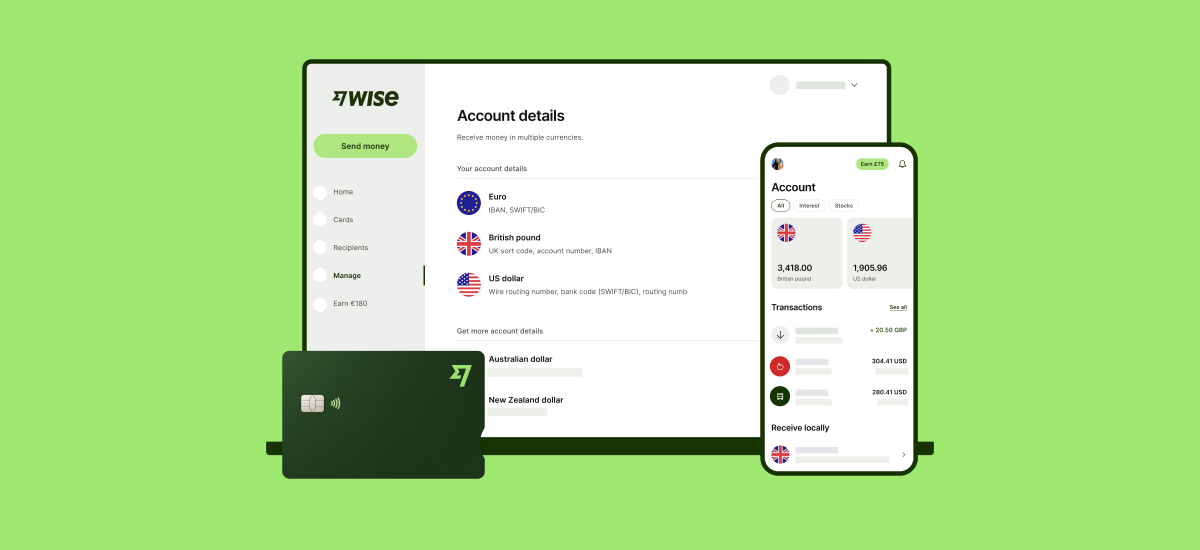How to Buy Commercial Property in Singapore: A guide for US businesses
In this US guide to buying commercial property in Singapore, navigate the process, costs, and unlock foreign investment opportunities with expert insights.

International shipments are a complex business, but the Incoterms® rules are here to help. Defined by the International Chamber of Commerce (ICC), the 11 Incoterms® rules are a set of norms that buyers and sellers can use when sorting out an international delivery. They define who is responsible for what.
One of those Incoterms® rules is DAP, and in this guide you’ll find out what DAP is, and what it means for you.

International transfer costs can really cut into the profit margins of a business.
That's why 7 million users are already using Wise, the new and clever way to send and manage money internationally.
Wise lets you send money for a low transparent fee using the mid-market rate, through their own network of local bank accounts. Money never crosses borders, fees stay low and you save cash.
Over 50 currencies to choose from
Local account details in the Eurozone, Poland, UK, Australia and New Zealand
Up to 19x cheaper than PayPal
No opening or maintenance fees
Integration with Xero

See if you could save with Wise
The DAP term within Incoterms® stands for “delivered at place.” When using DAP, you should also specify the place of destination – the place in the buyer’s country where it’s agreed the goods will be sent to.
With DAP, shipping – whether actually by sea, by land or by air – is mainly the responsibility of the seller, with relatively little left up to the buyer.
Under the DAP Incoterms® 2020 rule, the seller is responsible for:
On the other hand, the buyer is responsible for:
Import formalities – the buyer’s responsibility – include clearing the goods, and fees such as taxes and duties.
Neither party is obligated to provide insurance under the DAP Incoterms® rule. If it’s desired – and of course that’s a good idea – then insurance should be dealt with separately in the contract.¹ ² ³
DAP can be used with any mode of transport. Four of the eleven rules can only be used for waterbound transportation, but DAP isn’t one of them – it’s fine for air and land as well.
DAP was introduced in the Incoterms® rules 2010. It was designed to be used in place of three former Incoterms® rules: DAF, DES, and DDU.⁴
The ICC generally updates the Incoterms® rules once a decade, and the most recent updates occurred in 2010 and 2020. The DAP Incoterms® 2010 definition was not significantly changed in 2020.
There was a change to the similar Incoterms® rule DAT, though: it changed its name to DPU. More on that shortly.⁵
When you draw up a contract, you’re allowed to use whatever set of Incoterms® rules you want, so long as everyone agrees. You just have to specify clearly which edition you’re using – so include the year too.
That year will likely be 2020 or 2010. Any reference you might see to Incoterms® 2015, Incoterms® 2016, Incoterms® 2017, and so on, is inaccurate – there were no new sets of rules in the years between 2010 and 2020.⁶
Back in 2010, DAP was introduced alongside one other new Incoterms® rule: DAT, which replaced the older rule DEQ. In 2020, DAT was renamed DPU, but the rule itself remained the same.⁴
DPU stands for “delivered at place unloaded,” and there is only one key difference between DPU and DAP. Under DPU, the seller has responsibility for unloading the goods at the place of destination. Other than that, the responsibilities are the same as for DAP.⁷
Another similar rule is DDP – “delivered duty paid.”
DDP hands the seller all the responsibility of DAP, with one addition: the import process. Under DDP, the seller has to sort out the costs and formalities at customs clearance in the destination country.
That can lead to some issues with DDP – often, the buyer will be better placed to handle customs affairs in their own country. If that is a problem, DAP can be a great solution, so long as the buyer is able to get the requisite information to the carrier so that everything goes smoothly on arrival.⁸
All in all, DAP is a strong contender if the plan is to hand most of the responsibility to the seller, but the buyer is able to take on the import formalities. Opt for DPU instead, though, if the seller should also shoulder the responsibility of unloading at the goods’ final destination.
Either way, remember that the Incoterms® rules are not a definitive list of responsibilities. Other aspects still need to be considered – including insurance. It doesn’t hurt to have a decent knowledge of all 11 Incoterms® rules, either – so don’t forget to brush up.
Sources:
All sources checked 25 May 2020
*Please see terms of use and product availability for your region or visit Wise fees and pricing for the most up to date pricing and fee information.
This publication is provided for general information purposes and does not constitute legal, tax or other professional advice from Wise Payments Limited or its subsidiaries and its affiliates, and it is not intended as a substitute for obtaining advice from a financial advisor or any other professional.
We make no representations, warranties or guarantees, whether expressed or implied, that the content in the publication is accurate, complete or up to date.

In this US guide to buying commercial property in Singapore, navigate the process, costs, and unlock foreign investment opportunities with expert insights.

Learn the essentials of how to invest in commercial property in the UK as a US investor.

Discover how to invest in commercial property with our comprehensive guide.

Learn how to hire independent contractors in Canada. Understand legal rules, tax responsibilities, and how to avoid misclassification with this guide.

Learn how to hire independent contractors in Brazil. Understand tax rules, compliance, contracts, and how to avoid misclassification risks.

Learn how to hire and pay independent contractors in Mexico. This article also includes an FAQ and best practices about working with contractors in Mexico.